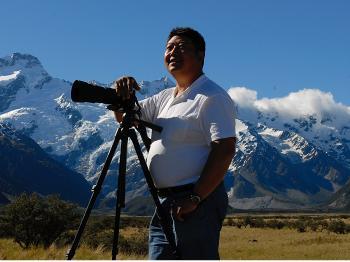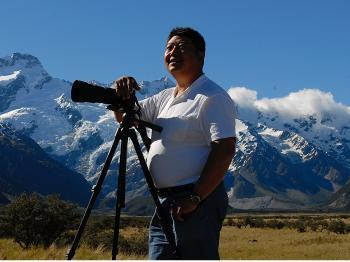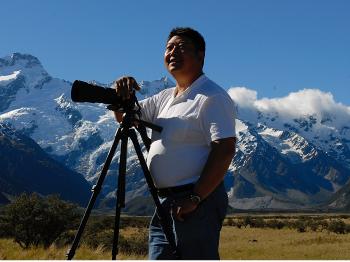Epoch Times: Why do people love photography?
Dai Bing: Because it records people’s lives and how they live. So almost every Chinese home has a camera. That’s one of the reasons why the NTD’s competition received nearly 10,000 submissions.
Since many people know how to use cameras, photography has developed into an art with its own characteristics. There are artistic standards in the use of color, light and composition which determine levels that not everyone can reach.
ET: One of the competition’s requirements is to include ancient Chinese values into their work. Do judges look for photos that look like Chinese paintings?
DB: [chuckles] No, of course not. Judging is based on the composition, light and the subject. It doesn’t matter if it looks more Western or Eastern.
When Chinese photographers take pictures, they suffuse it with a lot of Eastern culture. Western photographers pay attention to the outside structure, including lines and composition. They see details.
But Asians pay much more attention to a subject’s inner quality. Ancient Chinese artists could express their feelings in just a few strokes of a brush. We want to encourage this quality in contemporary photography and other works of art.
To be a good photographer you don’t necessarily need the greatest equipment. Your eye is more important than the camera. When your taste is really good you can very easily see a subject’s true beauty. A camera is only a person’s tool.
ET: Master photographers can see good pictures everywhere, while many hobbyists are happy when their shot just catches the right moment. Are good photos just a matter of luck?
DB: Yes. For example, a photographer friend of mine visited the Yellow Mountains [a mountain range in China]. He often stayed as long as ten days and would have nothing to show for his work. Perhaps every day was foggy. But, if a photographer happened to be carrying his camera in New York when 9-11 happened, that’s luck.
ET: How did you find your love of photography?
DB: I fell in love with photography as soon as I got my hands on a camera. My father was a well-known cancer specialist. When he returned from a conference in Washington DC, he brought back a camera. I would secretly take my dad’s camera to go out and take pictures. I was only a high school student at that time.”
One of these trips ended up in an unlikely place and helped me to understand a photographer’s mission. It’s something I’ll never forget. While riding a bus, I saw that a statue of Mao [former Chinese leader Mao Zedong] was being removed from its place in front of a college. A helicopter dropped a rope to the statue’s neck and pulled it up.
This was after the Cultural Revolution when people no longer honored Mao. So the government decided to remove the memorial. I had the camera in my pocket but was not brave enough to take the picture! Later I regretted that I had missed this historic moment. From then on, I decided to photograph everything I witnessed and I carried a camera with me all the time.
ET: Do you have a favorite photograph of yours?
DB: Not really. Maybe a picture I take tomorrow will be better than the one I took today. I have published two collections. One is about my home town.
ET: What’s your advice for photographers just starting out?
DB: Keep taking pictures of whatever you want. Practice is very important. You need to learn a lot and look at a lot of good photographs.
ET: Do you have favorites of other photographers?
DB: Some of my favorites are the war-time pictures of Cornell Capa, the “concerned photographer” who focused on humanitarian issues. His work is currently displayed at the International Center of Photography in New York. I’m standing on the shoulders of the great photographers in this exhibit.
The Chinese International Photography Competition is one of a series of international competitions sponsored by New Tang Dynasty Television. The series aims to encourage Chinese who love photography to highlight the values of traditional Chinese arts and to promote artistic work that portrays our world with compassion, grace, and righteousness.






